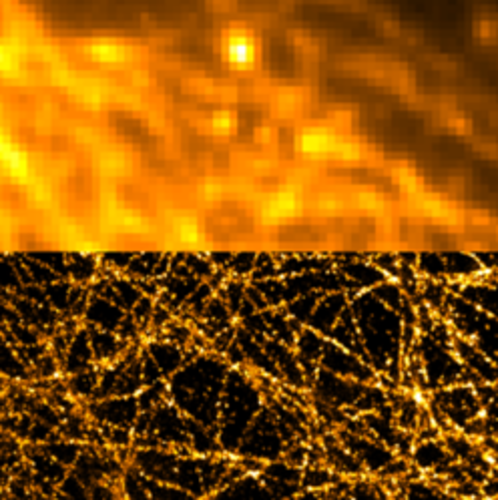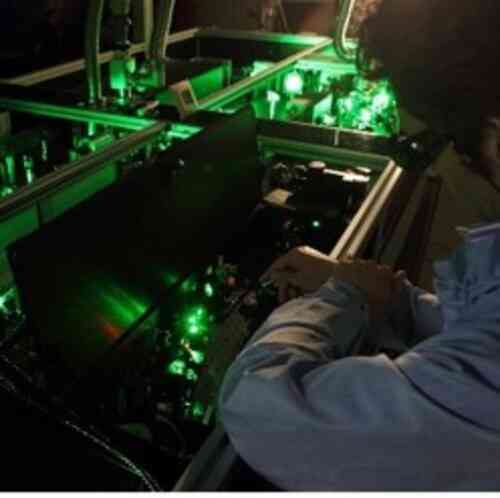ICFO decide game
Group 4 – Participant 4
Story cards
Read all the cards from this category, choose the one that looks more interesting to you and explain it to the rest of the group.
david díaz
Story Card 1
I'm an accountant and I'm very interested in science. That's why I often watch TV shows about technology. A few weeks ago, I saw Prof. Lluis Torner, director of ICFO, explaining that a smartphone uses things that have earned more than 20 Nobel photonic prizes, which make cameras, sensors, screens possible, as well as the technology used to manufacture microcircuits and many of their components, and to make the Internet possible. Who would have guessed that I had so much photonics in my pocket!
information and cYberseCurity
gerard grau
Story Card 15
This year I started the master's degree in Photonics in Barcelona. In one of the subjects, I discovered that photonics has a lot to do with my other passion: drones. If we fill these small planes with photonic sensors, we can get valuable information about places that would be difficult to reach. This makes drones not just fun toys, but important tools for studying the environment, searching for oil, gas, or mineral deposits, monitoring areas of natural disasters or crops.
information and cYberseCuriTY
núria navas
Story Card 17
A few days ago, I saw my two-years-old daughter trying (unsuccessfully) to slide the page of a newspaper with her finger. For a person like her, who was born in a world where there are screens everywhere, even on the fridge, it is natural to think of being able to interact with any surface or written word. This would not be possible if in recent years the screens had not improved so much, gaining in definition and functionality. Who could have imagined being able to interact so intuitively with a machine a few decades ago?
information and cybersecurity
info cards
Read all cards from this category, choose the two that look more interesting and explain them to the rest of the group.
ICFO, A different and diverse place
Info Card 2
Diversity is a key element to find creative and original solutions to problems: this is why diversity is an important asset for a scientific research center. At ICFO, there are people of more than 60 nationalities with diverse backgrounds (there are people who studied physics, chemistry, engineering, biology, neuroscience, mathematics, computer science, ...): with this mixture of cultures, languages and experiences it is easier to create an open and tolerant environment where new ideas can thrive and grow.
photonics everywhere
detection of microorganisms in water
Info Card 7
We are used to going to the beach without worrying about illnesses, because there are entities such as the Catalan Water Agency (ACA - its acronym in Catalan) that monitor the water along the beaches, ensuring the safety of bathers. Thanks to photonics, on-site analysis within a few hours will soon be possible, significantly reducing waiting times for detecting the presence of harmful microorganisms.
For this reason, the ACA has agreed with ICFO to develop this technology to monitor the state of the Catalan beaches. This same technology could also be applied in the field of food safety and other industrial sectors.
energy and environment
focusing on the smallest details
Info Card 17
While the quality of the cameras improves every day, there is always a detail in some photo that we can’t discern because there isn’t enough resolution. This problem is especially important for biologists who want to study cell structures, as there is a physical limit to the resolution of the images that can be obtained.
At ICFO there is a laboratory specializing in taking high-resolution photos and other advanced microscopy techniques that allow us to better understand the microscopic world and reveal the secrets of life.
Photo: Microtubules visualized with a conventional microscopy technique - top - and a super-resolution technique - bottom.
HEALTH
photographing the movements of electrons
Info Card 21
To capture images of some very fast things (such as a bullet passing through an apple) it is essential to illuminate them with a pulse of light as fast as the scene that we want to capture. Thus, in order to observe the behavior of the electrons in some chemical reactions, it is necessary to send extremely fast light pulses.
So fast that one second would have to be divided by the number of seconds that have passed since the beginning of the universe to get its duration (a few attoseconds).
In one of ICFO laboratories, they are working on the generation of these pulses to study phenomena that can help improve the synthesis of chemicals or the performance of fuels or computers.
Photo: One of the ICFO lasers that can generate ultrafast pulses
photonics everywhere
thinking cards
Read all the cards from this category, choose the one that looks more interesting to you and explain it to the rest of the group.
can we predict the future?
Thinking Card 8
In the 1960s, most futuristic representations for the years around 2000 included flying cars. Now, more than twenty years later, our expectations for the future have changed quite a bit.
Does it make sense to listen to someone who promises that their field of study will bring us the technology of the future? Can we really make predictions about the future of science and technology?
the applications of fundamental sciences
Thinking Card 12
Many of the technologies that we use nowadays derived from a very different research field. For example, the internet was created at an international particle physics research centre, CERN; satellite positioning systems (GPS, Galileo) owe their precision to the theory of general relativity.
Sometimes, research fields that in principle have no obvious applications, generate useful technologies as side effects. Should we then invest in fundamental research for the potential benefits coming from its eventual byproducts? Or is the advancement of knowledge sufficient reason to put resources into it?
DECISIon
The time and resources available to solve important problems affecting society are limited. Imagine being part of the commission that has to decide how to invest the money for photonics research at European level for the coming years: knowing that photonics benefits society in many different ways, how would you distribute funds among the different research fields in photonics?
This is not an individual decision: each group must come to a unanimous conclusion by discussing correctly and rationally based on the facts that you have learned so far. There is no right or wrong answer. Like many things in life, it depends on the point of view you assume, the priorities you set, ...
light for health
Option 1
The pandemic that arose in 2020 taught us that public health is an important sector that affects many more aspects of society. A tiny virus can affect the lives of millions of people in all its aspects, not only health, but also the economy, industrial structure, labor market ...
That’s why it’s important to focus most of our efforts on research projects that can improve and care for people’s health.
light for information and cybersecurity
Option 2
We live in the information age. More and more companies and institutions are collecting and analyzing large amounts of data to improve industrial processes and services for the population. In addition, digital technologies are essential to communicate with each other, whether for work or fun. If information systems fail, strategic structures such as energy networks, traffic control, hospitals, governments, etc. fail, too. Thus, ensuring data security for quick and massive data transfer is of fundamental importance for a digitized society like ours.
That is why it is important to focus most of our efforts on research projects that can improve data collection, analysis, transmission and security.
light for energy and the environment
Option 3
We are in the middle of a climate emergency: to be able to solve it we need new environmental policies and the commitment of society as a whole. Science and technology can accelerate the change of paradigm that we need to save the planet with discoveries and innovative technologies. If we do nothing now, the Earth will be uninhabitable and unsustainable, but there’s still time.
That’s why it’s important to focus most of our efforts on research projects that can help us take care of our planet.
photonics everywhere
Option 4
Photonics is everywhere and has a positive impact in many different aspects of our lives. Sometimes, the same technology (such as the laser) can improve health, information and care for the environment at the same time. There are many global issues and it is difficult to set a priority, especially because they are interconnected.
That’s why it’s important not to focus our efforts on a single field of application: it’s better to diversify our efforts to have more chances of success.













